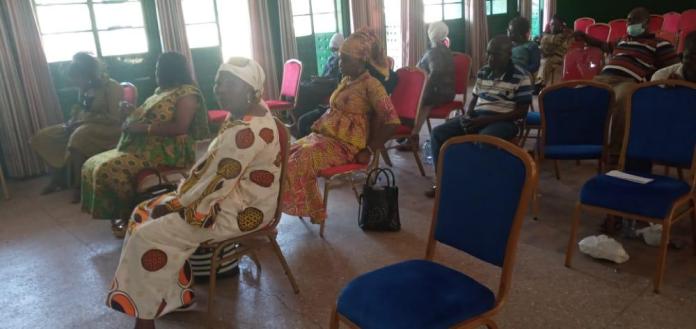The Ghana Education Service (GES) has instituted measures, including the training of a taskforce, to ensure pre-tertiary school children, particularly girls, return to school on resumption.
The training of the “Back-to-School” taskforce at Wchiau in the Wa West District on Monday formed part of a “Back-to-School Advocacy Campaign” being spearheaded by the Girls’ Education Unit of the GES with support from UNICEF.
The training was also to disseminate the “Guidelines for Prevention of Pregnancy among School Girls and Facilitation of Re-entry into School after Childbirth.”
Alhaji Dasaana N. S. Adamu, the Upper West Regional Secretary of the Ghana National Association of Privates Schools, noted that the Coronavirus (Covid-19) outbreak in the country could increase the number of school dropouts if steps were not taken to counter its impact.
President Akufo-Addo announced that schools would resume in January 2021 after they were closed down in March this year due to the outbreak of the Covid-19 pandemic.
Alhaji Adamu said the “Back-to-School” campaign, which involved regional and district teams, was to sensitize communities and school children on the need for them to return to school.
The two-day training covered areas, including the prevention of pregnancy and re-entry for girls, safe schools and Covid-19 protocols, interventions and emerging issues among others.
Alhaji Adamu entreated teachers and school authorities to employ positive discipline tools such as gifts and praises to entice the children rather than corporal punishment that could deter the child from returning to school.
He said due to the long break, some children were engaged in activities that took away their interest in school and that any actions such as bullying and corporal punishment could keep them out of school.
Mr Nanyaa Comas, a representative from the Guidance and Counselling Unit of the GES, Upper West Region, observed that data from the Educational Management Information System (EMIS) showed that 346 school girls in the region were reported pregnant during the 2018/2019 academic year.
That, he said, comprised 51 Upper Primary, 218 Junior High School, and 77 Senior High School children.
He said to prevent pregnancy among school girls, there was the need to promote the GES position of “no sex” among school children, provide age-appropriate guidance and counseling for the children and collaborate with parents to supervise children both at home and in school, among others.
The participants identified school dropout, unsafe abortion, and its attendant consequences and reinforcement of the poverty cycle in the family as some of the negative impacts of pregnancy among girls.
The 30-member task force was made up of representatives from the GES, Department of Social Welfare, GNAPS, Civil Society Organisations, Traditional Authority, and the Clergy, among others.
Latest Stories
-
Accra Mayor gives pavement traders May 20 deadline to vacate streets
2 minutes -
NSA boss commends Rugby League Federation Ghana during official visit
7 minutes -
Scout, Guide leaders undergo intensive training
8 minutes -
Cooking with firewood similar to smoking two packs of cigarettes daily – Dr Danyoh
16 minutes -
OTC cash withdrawals in foreign currency are allowed – BoG assure
23 minutes -
AFCOM missions donates to Koforidua school for the deaf; pledges to complete abandoned washroom
23 minutes -
I’m a prophet – Archipalago speaks on King Promise and Kweku Smoke’s TGMA win
31 minutes -
Upstream petroleum oversight: GRA affirms SML suspension but…
32 minutes -
Education Minister engages global leaders in Rome
38 minutes -
“My Dad Disowned Me”: Archbishop Agyinasare links childhood struggles to divorce and rebellion
39 minutes -
Supreme Court must champion progress, not just interpret the law – Baffour Awuah
42 minutes -
You can withdraw dollars over the counter – BoG clarifies
44 minutes -
Supreme Court must be diligent to guide future cases – Baffour Awuah
51 minutes -
Is Africa’s answer hidden in the Sahel? Evaluating an emerging sovereignty-driven governance model beyond western prescriptions
52 minutes -
CSO files Supreme Court suit to stop Chief Justice removal
1 hour

